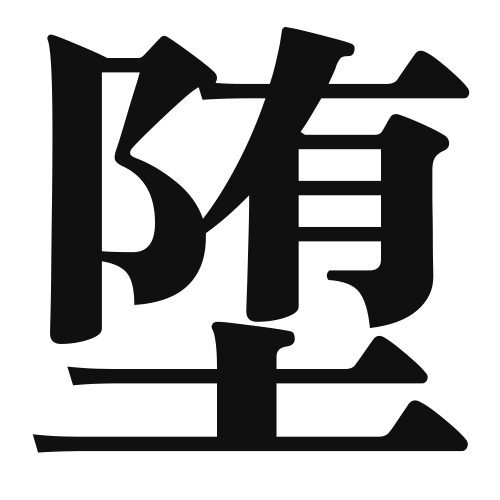1. Overview of Meaning
The kanji “堕” (da) generally means “to fall” or “to descend.” It often conveys a sense of decline or degradation, both physically and metaphorically.
2. Formation and Radical
The kanji “堕” is a phonetic-ideographic character (形声文字), which combines a meaning component and a phonetic component. The left part, “土” (meaning “earth” or “ground”), suggests a connection to the earth, while the right part, “落” (meaning “to fall”), indicates the action of falling.
The radical of “堕” is “土,” which relates to earth or soil, emphasizing the grounding aspect of the action described by the kanji.
3. Examples of Usage
Common words and phrases that include “堕” are:
- 堕落 (だらく, daraku) – “fall from grace” or “moral decline”
- 堕胎 (だたい, datai) – “abortion”
In everyday conversation, you might hear:
「彼は堕落した生活を送っている。」
(He is living a fallen lifestyle.)
4. Synonyms and Antonyms
Similar kanji with related meanings include:
- 落 (おちる, ochiru) – “to fall,” which is more general and does not carry the same connotation of moral decline.
Antonyms include:
- 昇 (のぼる, noboru) – “to rise” or “to ascend,” indicating an upward movement or improvement.
5. Cultural and Historical Background
The kanji “堕” has connections to Japanese culture, particularly in discussions about morality and ethics. It is often used in literature and philosophy to describe a fall from virtue.
Proverbs and idiomatic expressions that include “堕” might reflect on the consequences of moral decline, such as:
「堕落は自ら招く。」
(Decline is self-invited.)
